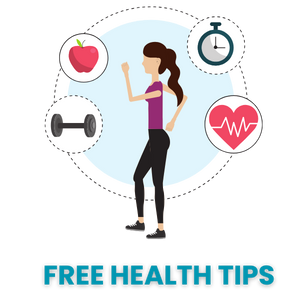Heart-Healthy Tips – Maintaining a strong cardiovascular system is crucial to good health and long life. A healthy heart enhances your quality of living while decreasing your risk of many diseases. This article provides practical tips and insights on how you can keep your heart healthy and strong.
Heart-Healthy Tips Strengthen Your Cardiovascular System:
Explore natural weight loss remedies that you can easily apply at home, find healthy lifestyle changes that are perfect for beginners, and get your daily health tips especially designed for seniors to enhance wellbeing.
1. Understanding Cardiovascular Health:
Cardiovascular health refers to the status of the heart and blood vessels. The main function of the former is to pump blood to the latter, which delivers oxygen and nutrients to tissues and carries away waste products. Diseases such as heart disease, hypertension, and stroke thus have a strong impact on health at large. It is very important, therefore, that there be a healthy cardiovascular system .
2. Advantages of Healthy Cardiovascular System:
A healthy heart has several advantages, from giving you energy and improving endurance to reducing the risk of heart disease and stroke and improving your mental health and cognitive function, keeping you sharp and attentive.
3. Nutrition for Heart Health:
3.1 Balanced Diet:
A balanced diet is crucial to a healthy heart. That said, foods high in fruits, vegetables, lean proteins, whole grains, and healthy fats should be part of what you eat. These are foods that provide the required nutrients for the proper functioning of the heart and proper nutrition.
3.2 Foods to Avoid:
Avoid processed foods, saturated fats, and sugars for the maintenance of cardiovascular health. These may cause clogging of arteries that subsequently leads to heart disease. Instead, opt for more natural whole foods as much as possible.
4. Exercise and Physical Activity:
4.1 Importance of Regular Exercise:
It strengthens the heart and enhances blood circulation. Cardio, strength training, and flexibility exercises create healthy states of hearts. At least 150 minutes of moderate aerobic or 75 minutes of vigorous activity must be included every week.
4.2 Putting It Together: Exercise in a Busy Life:
It may be very challenging to be active if one has a busy schedule, but it is one of the essentials for keeping your heart healthy. It could be walking or bicycling around or doing some kind of home workout. Try to make it a routine-a part of daily, such as when taking the stairs instead of the elevator at work or doing a quick workout in your break at work.
5. Stress Management and Heart Health:
5.1 The Relation Between Stress and Heart Health:
Chronic stress causes the distress of high blood pressure and other cardiovascular issues. Therefore, taking good care of your heart is as important as managing your stress levels.
5.2 Managing Stress:
Practices like meditation, deep breathing, or mindfulness can work well in effectively managing stress. Infusing relaxation practices in our daily lives helps increase mental clarity with lesser strain on the heart.
6. Going for Periodical Health Check-Ups:
6.1 Importance of Monitoring Heart Health:
Regular follow-up consultations and screening must be conducted for maintaining heart health. Necessary indicators in the report are blood pressure, cholesterol, and heart rate. This is periodically checked to determine their probability.
6.2 Coordination with the Healthcare Professionals:
Doctors and specialists are the key people behind heart health management. Doctors’ advice and medication plans must be adhered to for maintaining a robust cardiovascular system.
7. Lifestyle Change for Heart Health:
7.1 Quitting Smoking:
Smoking is harmful to cardiovascular system. QuittiSmokinging can significantly help the heart and reduce the risk of heaSmokingase.
7.2 Restriction of Alcohol Consumption:
Too much alcohol is detrimental to the heart. There needs to be limits on the amount that one should consume to maintain cardiovascular system health.
FAQs:
Which exercises are good for the heart?
Cardiovascular fitness exercises, strength training, and flexibility exercises promote heart health. I like the concept of brisk walking, running, swimming, and weight lifting.
When should I have my heart checked?
Annual heart check-ups and screening are recommended based on age and other risk factors. Most adults will need an assessment of their heart health every 1-2 years, or more often if the patient has a condition already.
Can my heart be affected by stress?
Yes, chronic stress may lead to high blood pressure, thereby affecting heart health. Relaxation techniques and lifestyle choice for management of stress are therefore very important.
What are some heart-healthy foods?
Heart-healthy foods include such things as leafy greens, berries, nuts, and fatty fish. They give the necessary nutrients that enhance heart working and overall health.
Conclusion:
Correct care of the cardiovascular system should be considered a requirement in living a healthy life. If one follows the tips found in this article, they can help support the heart and, overall, quality of life. That a healthy heart is the base of a healthy body remains a fact.


















Leave a Reply